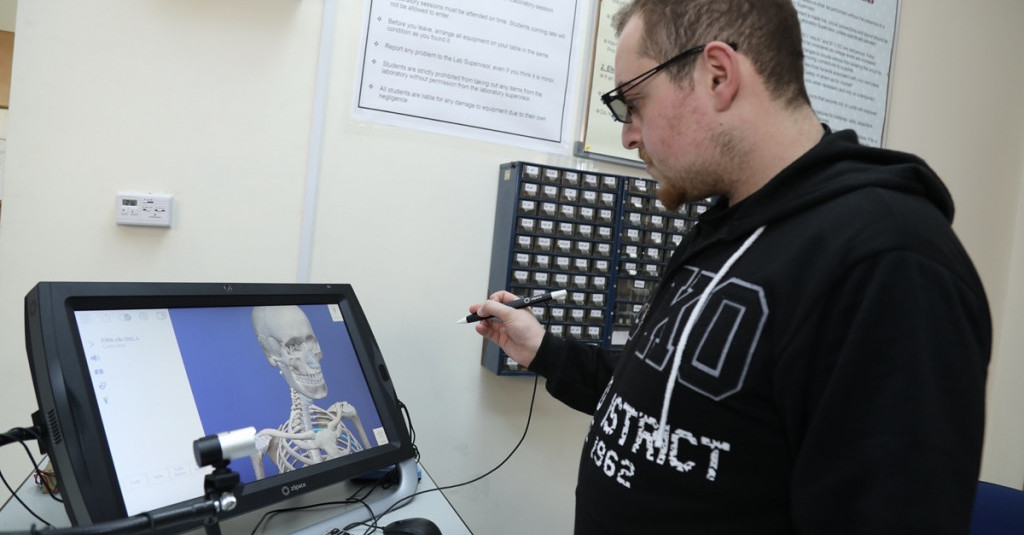Why Biomedical Engineering is One of the Most In-Demand Careers of the Future

In an era of technology rapidly revolutionizing healthcare, biomedical engineering stands at the forefront of innovation. This interdisciplinary field combines engineering principles with biological and medical sciences to develop life-saving technologies and improve patient care. From prosthetic limbs to advanced imaging systems, biomedical engineers play a critical role in shaping the future of medicine.
This blog explores why biomedical engineering is among the fastest growing and most rewarding fields today, shedding light on its impact, career opportunities, and the skills required to thrive in this exciting profession.
What is Biomedical Engineering?
Biomedical engineering bridges medicine and technology, focusing on designing and developing medical devices, imaging systems, and therapeutic equipment.
Have you ever wondered how pacemakers keep hearts beating or how MRI machines produce detailed human body images? These are just a few examples of biomedical engineering at work.
Biomedical engineering consists of several subfields, including:
- Medical Devices: Development of pacemakers, ventilators, and diagnostic tools.
- Tissue Engineering: Creating artificial organs and regenerative therapies.
- Biomechanics: Designing prosthetic limbs, exoskeletons, and orthopedic implants.
- Bioinformatics: Using computational methods to analyze biological data for personalized medicine.
- Neural Engineering: Developing brain-machine interfaces and neuroprosthetics.
The Rapid Development in Healthcare Technology
Advancements in healthcare technology have accelerated at an unprecedented pace, driven mainly by biomedical engineering innovations.
Some groundbreaking developments include:
- 3D Printing of Organs: Scientists are now printing functional tissues and organs, reducing the need for donor transplants.
- Robotic Surgeries: Precision robotic systems assist surgeons in performing complex procedures with minimal invasiveness.
- Artificial Intelligence in Diagnostics: AI-powered systems help doctors detect diseases like cancer at earlier stages, improving patient outcomes.
Biomedical engineers are the driving force behind these advancements, working to create technologies that enhance the quality and accessibility of healthcare worldwide.
The Growing Demand for Biomedical Engineers
The demand for biomedical engineers is rising, with the global market projected to grow significantly in the coming years. According to the U.S. Bureau of Labor Statistics, employment in biomedical engineering is expected to increase by 10% from 2021 to 2031, faster than the average for other occupations.
Several factors contribute to this growth:
- Aging Population: With an increasing number of elderly individuals worldwide, the demand for advanced medical devices and healthcare solutions continues to rise.
- Technological Innovation: The need for cutting-edge medical devices and personalized treatments fuels the expansion of the biomedical engineering field.
- Global Health Challenges: Biomedical engineers are vital in addressing pressing healthcare issues, from pandemics to chronic diseases.
These trends indicate a bright future for those pursuing a career in biomedical engineering.
High Earning Potential and Career Opportunities
Biomedical engineering offers a diverse range of career opportunities across various industries. Professionals in this field can work in:
- Research and Development: Innovating new medical technologies and treatments.
- Healthcare Systems: Implementing and managing medical devices in hospitals and clinics.
- Academia: Teaching and conducting research in universities.
- Pharmaceutical Companies: Developing drug delivery systems and biomedical materials.
With competitive salaries and significant growth potential, biomedical engineering is a lucrative career choice for those passionate about science, technology, and healthcare.
Skills and Education Required to Become a Biomedical Engineer
To succeed in biomedical engineering, individuals need a blend of technical and analytical skills, including:
- Problem-Solving Abilities: Finding innovative solutions to complex medical challenges.
- Creativity: Designing groundbreaking medical devices and procedures.
- Knowledge of Biology and Engineering Principles: Understanding human anatomy, physiology, and engineering fundamentals.
Educational pathways for biomedical engineers include:
- Bachelor’s Degree: A foundational requirement for entry-level positions.
- Master’s Degree: Provides specialization opportunities and career advancement.
- Doctorate (Ph.D.): Ideal for those pursuing research and academic roles.
Ajman University offers top-tier programs and certifications for aspiring biomedical engineers to help students build successful careers in this dynamic field.
Biomedical engineering is a rapidly growing field that is crucial in transforming healthcare. With its potential to innovate medical technology, improve patient care, and offer diverse career opportunities, it is an excellent career choice for those interested in engineering and medicine.
If you’re passionate about making a difference in healthcare, now is the time to explore biomedical engineering. Learn more about biomedical engineering programs at Ajman University and take the first step toward a fulfilling and impactful career.
FAQs
-
How long does it take to become a biomedical engineer?
A bachelor’s degree typically takes four years, with additional years required for advanced degrees or specializations.
-
How can I start a career in biomedical engineering?
Start by pursuing a relevant degree, gaining hands-on experience through internships, and staying updated with the latest healthcare technology trends.
-
What skills are required to succeed in biomedical engineering?
Strong problem-solving skills, creativity, technical knowledge, and a passion for healthcare innovation are essential for success in this field.